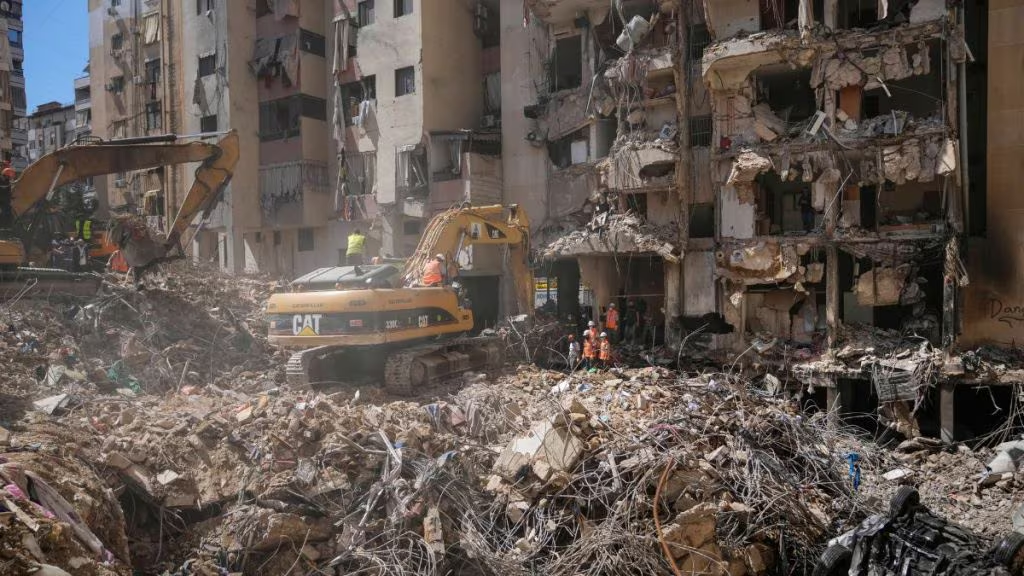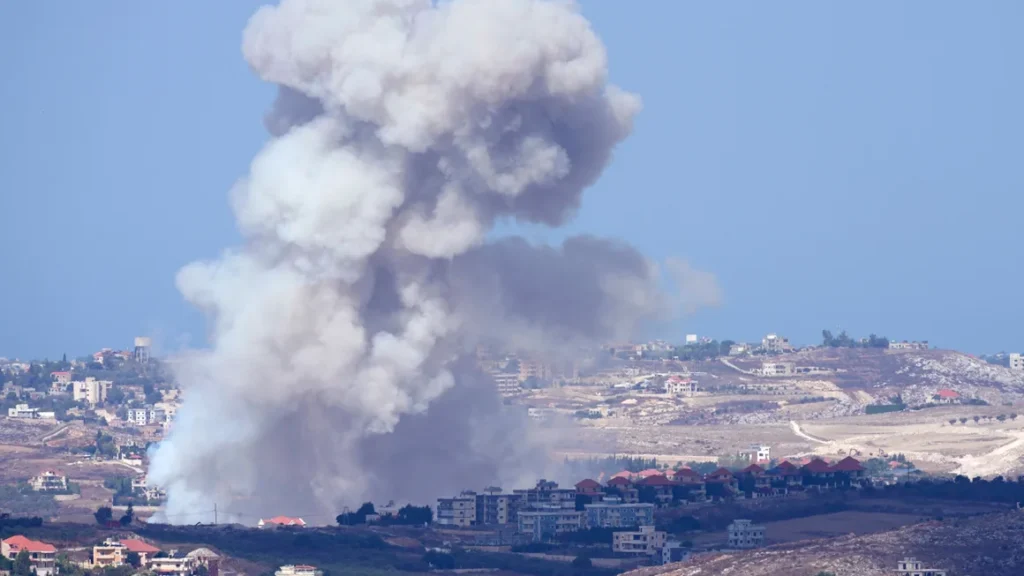The Israel-Hezbollah war has become a central element of the broader conflict between Israel and its adversaries in the Middle East. While Israel has been engaged in a protracted war with Hamas in Gaza since October 2023, its northern front with Hezbollah, the Lebanese-based militia backed by Iran, has emerged as a significant flashpoint. The conflict between Israel and Hezbollah is rapidly intensifying, threatening to pull the region into a wider war.
In this article, we will explore the latest developments in the Israel-Hezbollah war, its impact on civilians, the strategies employed by both sides, and the international response to this growing conflict.
Table of Contents
Escalation in the North
The involvement of Hezbollah in the Israel-Hezbollah war began shortly after the outbreak of fighting between Israel and Hamas in Gaza. Hezbollah’s leader, Hassan Nasrallah, expressed strong solidarity with Hamas, declaring that Israel’s actions in Gaza would not go unanswered. True to his word, Hezbollah began launching rocket attacks from southern Lebanon into northern Israel in early October 2023.
The situation worsened in mid-September 2024 when Hezbollah ramped up its missile strikes. Over 100 rockets were launched into Israel, primarily targeting civilian areas and IDF (Israel Defense Forces) installations near the Lebanese border. Israel responded with a series of massive airstrikes on Hezbollah’s infrastructure, including missile depots and command centers in southern Lebanon(The Times of Israel).
Israeli officials have expressed concern that Hezbollah is attempting to open a second front to divide Israeli forces between Gaza and Lebanon. Given Hezbollah’s vast stockpile of long-range missiles, its involvement in the conflict significantly complicates Israel’s military strategy. Unlike Hamas, which primarily operates within Gaza, Hezbollah’s influence extends far beyond Lebanon due to its connections with Iran and other Shiite militias in the region(UPI).

Israel’s Military Response
Israel’s military response to Hezbollah has been swift and decisive. Over the past few weeks, Israeli airstrikes have targeted Hezbollah’s missile storage facilities, command centers, and launch sites, causing significant damage to the group’s military infrastructure. Israeli officials have made it clear that they intend to degrade Hezbollah’s military capabilities, similar to their ongoing efforts in Gaza.
However, despite Israel’s air superiority, Hezbollah’s missile capabilities remain a significant threat. The group has stockpiled thousands of missiles over the past two decades, many of which have the range to reach major Israeli cities, including Haifa and Tel Aviv. This has prompted Israeli officials to deploy additional troops and anti-missile defense systems in the north, particularly the Iron Dome, which has successfully intercepted many of Hezbollah’s rockets.
Israeli Prime Minister Benjamin Netanyahu has warned that the Israel-Hezbollah war could escalate further if Hezbollah continues its attacks. He emphasized that Israel will not hesitate to take more drastic military actions if Hezbollah threatens Israeli civilians or military targets(UPI).
Hezbollah’s Strategy
Hezbollah’s involvement in the Israel-Hezbollah war appears to be part of a broader strategy aimed at pressuring Israel on multiple fronts. Unlike Hamas, which operates independently within Gaza, Hezbollah is closely aligned with Iran. This connection has led many analysts to suggest that Hezbollah’s actions are part of Iran’s broader strategy to challenge Israeli dominance in the region.
Hezbollah’s leader, Hassan Nasrallah, has framed the group’s involvement in the conflict as a response to Israeli aggression. In his speeches, Nasrallah has vowed to continue the fight until Israel is defeated, referring to the ongoing war as part of a larger regional struggle against Israeli and Western influence in the Middle East(The Times of Israel).
One of Hezbollah’s main tactics has been its use of long-range missile strikes. These strikes are designed to inflict significant damage on Israeli infrastructure and force Israel to divert military resources away from Gaza. Hezbollah has also adopted a strategy of using civilian areas in southern Lebanon as cover for its military operations, making it difficult for Israel to target its forces without causing civilian casualties(UPI).
This tactic has drawn international condemnation, with the European Union and United Nations both calling for Hezbollah to cease its use of civilian areas for military purposes. The international community has urged Hezbollah and Israel to seek diplomatic solutions, but the situation remains volatile.
Impact on Civilians
As with any war, civilians have borne the brunt of the Israel-Hezbollah conflict. In northern Israel, thousands of residents have been evacuated from towns near the Lebanese border. Schools, businesses, and public services in the region have been shuttered as residents seek shelter from Hezbollah’s rocket attacks.
The situation in Lebanon is equally dire. The Israeli airstrikes on Hezbollah targets have caused significant destruction in southern Lebanon, leading to a humanitarian crisis. Thousands of Lebanese civilians have been displaced, and many have sought refuge in other parts of the country. The destruction of key infrastructure, including roads and power lines, has made it difficult for humanitarian organizations to deliver aid to affected areas(UPI).
According to Lebanese health officials, the ongoing Israeli airstrikes have resulted in over 492 deaths and more than 1,600 injuries as of September 2024. Many of the casualties are civilians caught in the crossfire between Hezbollah and the IDF. The situation has prompted calls for a ceasefire from humanitarian organizations, but both Hezbollah and Israel have shown little interest in halting their military operations
International Reactions
The international response to the Israel-Hezbollah war has been one of concern, with many world leaders warning that the conflict could escalate into a broader regional war. The United States has deployed additional troops to the region to deter further aggression by Hezbollah and other Iranian-backed militias. U.S. officials have also called on Israel to exercise restraint in its military actions against Hezbollah, while at the same time expressing support for Israel’s right to defend itself(UPI).
The European Union has been particularly vocal in its calls for a diplomatic solution to the conflict. Josep Borrell, the EU’s foreign policy chief, warned in late September 2024 that the region is on the brink of a full-scale war. Borrell emphasized the need for immediate diplomatic intervention to prevent further escalation, but so far, efforts to broker a ceasefire have been unsuccessful(The Times of Israel).
France has also taken a leading role in diplomatic efforts to resolve the conflict. French Foreign Minister Jean-Noël Barrot called for an emergency meeting of the U.N. Security Council to address the situation in Lebanon. Barrot has expressed concern that the ongoing war could destabilize the entire region if left unchecked
Regional Implications
The Israel-Hezbollah war has far-reaching implications for the Middle East. Hezbollah’s involvement in the conflict highlights the growing influence of Iran in the region, particularly through its network of proxy militias in Lebanon, Syria, and Iraq. Iran has been a key supporter of Hezbollah, providing the group with weapons, training, and financial backing.
If the Israel-Hezbollah war escalates further, it could draw in other regional actors, including Syria and Iraq. Both countries have militias aligned with Hezbollah and could potentially become involved in the conflict if the fighting intensifies. This would turn an already complex situation into a broader regional war with devastating consequences(The Times of Israel).

The Path Forward
As the Israel-Hezbollah war continues, the prospects for peace remain uncertain. Israel has made it clear that it will continue its military operations until Hezbollah is neutralized as a threat. Hezbollah, for its part, has shown no signs of backing down, and its leader Hassan Nasrallah has vowed to continue the fight.
The international community has called for a ceasefire, but so far, neither side has shown a willingness to negotiate. For now, the war rages on, with both Israeli and Lebanese civilians caught in the crossfire. The world watches with bated breath as the conflict threatens to engulf the region in further chaos.
For more such content follow Taza Content